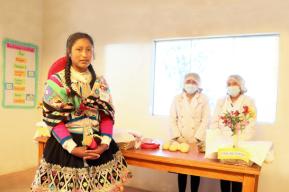Article
Universal access to education: We can do better

Education is a fundamental human right. Yet millions of children and adults remain deprived of educational opportunities.
Linda Klaassen
UNESCO
Everywhere, the Covid-19 pandemic has hit the most vulnerable and marginalized the hardest – affecting 1.6 billion learners at its peak, when the majority of the world’s schools were temporarily closed. It has widened inequalities and could erode decades of hard-won progress. About 24 million children and youth – from pre-primary to tertiary education – are at risk of dropping out because of the pandemic’s economic impact alone, according to UNESCO’s estimates.
Girls and women constitute a particularly vulnerable group regarding the right to education. They account for 131.7 million out-of-school children and for two-thirds of the 773 million illiterate adults. The Covid-19 pandemic has aggravated already existing inequalities – it is estimated that 11 million girls may not return to school. Girls aged 12 to 17 are especially at risk of dropping out in low and lower-income countries.
This is particularly alarming as education is one of the most powerful tools by which marginalized children and adults can lift themselves out of poverty and fully integrate into society.
Source: Guidelines to strengthen the right to education in national frameworks, UNESCO, 2021. #HerEducationOurFuture: Keeping girls in the picture during and after the Covid-19 crisis, 2021.
Read more:
When going to school is an act of faith, The UNESCO Courier, January-March 2018
We’re breaking our promise to teach all the world’s children, The UNESCO Courier, September 2010
Subscribe to The UNESCO Courier for thought-provoking articles on contemporary issues. The digital version is completely free.




